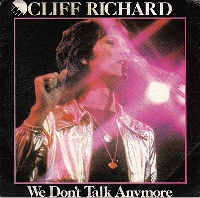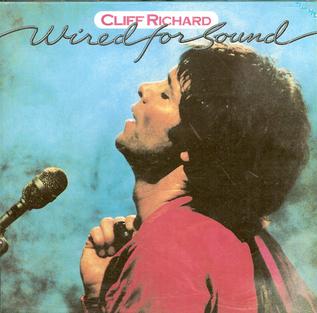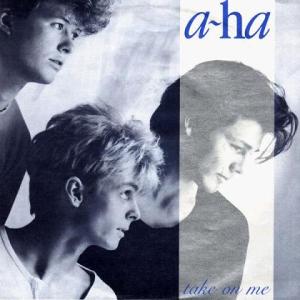
"Crazy Little Thing Called Love" is a song by the British rock band Queen. Written by Freddie Mercury in 1979, the track is included on their 1980 album The Game, and also appears on the band's compilation album Greatest Hits in 1981. The song peaked at number two in the UK Singles Chart in 1979, becoming the group's first number-one single on the Billboard Hot 100 in the US in 1980, remaining there for four consecutive weeks. It topped the Australian ARIA Charts for seven weeks. It was the band's final single release of the 1970s.

John Charles Waite is a British rock singer and musician. As a solo artist, he has released ten studio albums and is best known for the 1984 hit single "Missing You", which reached No. 1 on the US Billboard Hot 100 and the top ten on the UK Singles Chart. He was also the lead vocalist for the successful rock bands The Babys and Bad English.

Living in a Fantasy is the eighth album by the English singer-songwriter Leo Sayer. It was released on 22 August 1980.

Climax Blues Band is a British blues rock band. The band has released at least 19 albums. "Couldn't Get It Right" reached #10 on the UK Singles Chart and #3 on the Billboard Hot 100 in 1977. "I Love You" peaked on Billboard at #12 in 1981.

"Let's Go" is a song by American rock band the Cars, written by Ric Ocasek for the band's second studio album, Candy-O (1979). A new wave rock song, the song's hook was inspired by the Routers. The song's vocals are performed by bassist Benjamin Orr.

Totally Hot is the tenth studio album by British-Australian singer Olivia Newton-John, released on 21 November 1978. Commercially, it became her first top-ten album on the Billboard 200 chart since Have You Never Been Mellow (1975). Dressed on the album cover all in leather, Newton-John's transformation was seen to mirror her character Sandy's transformation in Grease. At the time, Totally Hot was her most successful album, and became her first album to receive a Platinum certification by the Recording Industry Association of America (RIAA).

"We Don't Talk Anymore" is a song recorded by Cliff Richard that reached number one in the UK Singles Chart in August 1979, remaining there for four weeks. Produced by the Shadows' rhythm guitarist, Bruce Welch, and written by Alan Tarney, it was Richard's tenth UK number one and his first since "Congratulations" in 1968.
Tarney/Spencer Band were a rock band formed in London in 1975 with Trevor Spencer on drums and Alan Tarney on lead guitar, bass guitar and lead vocals. Both had been in Australian bands, including James Taylor Move, prior to relocating to the United Kingdom, where they formed the duo. The group issued three albums, Tarney and Spencer (1976), Three's a Crowd (1978) and Run for Your Life (1979). Their single, "No Time to Lose" (1979), received airplay in the United States on album-oriented rock radio stations. It charted on the Billboard Hot 100 in both 1979 and again in 1981 upon re-issue. By the end of 1979, Tarney/Spencer Band had broken up and both founders undertook careers as songwriters, session musicians and record producers.

American rock band Aerosmith has released 72 singles. Some of their singles have been officially released to the public, while others have been released as album cuts only to radio. Twenty-one of their songs have reached the Top 40 of the Billboard Hot 100 and the band has long been a stalwart of the Mainstream Rock Tracks chart, achieving nine number-one hits on that chart to date. An additional 28 of the band's songs have reached the Top 40 on various charts worldwide. The band has achieved four multi-platinum singles, while an additional eight singles have attained silver, gold, or platinum certifications in various territories. The band has certified sales of 16.5 million singles in the United States.
Alan Tarney is an English record producer and musician. He was born in Northside, Workington, Cumberland, but spent his teenage years in Adelaide, Australia, where he met his songwriting and musical partner Trevor Spencer. He is best known for his association with Cliff Richard and producing "Take On Me" by a-ha.

Wired for Sound is the 24th studio album by Cliff Richard, released in September 1981. The album peaked at number 4 in the UK album charts upon release, and spent a total of 25 weeks on the chart in 1981–82. The album was certified Platinum by the BPI, and achieved global sales of over one million.
"There's a Honky Tonk Angel (Who'll Take Me Back In)" is a song best known for the 1974 recording by American country music artist Conway Twitty, who took it to number 1 on the Hot Country Singles chart. The song was written by Troy Seals and Denny Rice and originally released on Troy Seals' 1973 debut album Now Presenting Troy Seals.

"Take On Me" is a song by the Norwegian synth-pop band a-ha. The original version, recorded in 1984 and released in October of that same year, was produced by Tony Mansfield and remixed by John Ratcliff. The 1985 international hit version was produced by Alan Tarney for the group's debut studio album, Hunting High and Low (1985). The recording combines synth-pop with a varied instrumentation, including acoustic guitars, keyboards, and drums.

"You Better Run" is a song by the Young Rascals. Written by group members Eddie Brigati and Felix Cavaliere, it was released as the band's third single in 1966 and reached the top 20 in the United States. This song is noted for its repeated roller coaster musical chords in the bass guitar, going from C to B-flat to C to E-flat to B-flat to C.

"An American Dream" is a song written by Rodney Crowell. He recorded it under the title "Voilá, An American Dream" on his 1978 album Ain't Living Long Like This, and released it as the B-side to that album's single "(Now and Then There's) A Fool Such as I".

"Lonesome Loser" is a song written by David Briggs and performed by Australian rock music group Little River Band. Released in July 1979 as the lead single from their fifth studio album First Under the Wire, the song peaked at number 19 on the Australian Kent Music Report singles chart. The song also peaked at No. 6 on the Billboard Hot 100, becoming the band's third top 10 hit and sixth overall top 40 hit in the United States.

"Wired for Sound" is a song recorded by English singer Cliff Richard, released in 1981 as the lead single for his album of the same name. The song reached number 4 in the UK Singles Chart and was certified silver by the BPI for sales over 250,000. The song reached number 2 in Australia and South Africa, and was a hit in a number of European countries. The song was written by Alan Tarney and B.A. Robertson.

"Dreamin'" is a song recorded by Cliff Richard from his 1980 album, I'm No Hero. The track was the first of three singles released and was the biggest hit from the album, becoming a top-ten hit in numerous countries including the UK and the US where it became his third and last top ten hit.
"Lies" is a song written by Beau Charles and Buddy Randell, performed by The Knickerbockers; the single was produced by Jerry Fuller. It reached #20 on the U.S. pop chart in 1966. It was featured on their 1966 album Lies and is famous for often being mistaken for a Beatles track due to its similarities to their style and harmonies.
"Hangin' On" is a song by the Gosdin Brothers, released in August 1967. It has been recorded by numerous artists, including Joe Simon, Ann Peebles, Cher, Cliff Richard and Ann-Margret & Lee Hazlewood.















